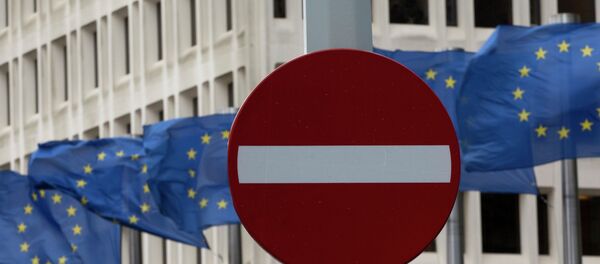Embargoes are double-edged weapons: they hit not only the economy of the targeted state, but also that of the countries which initiated them, the Swiss newspaper Basler Zeitung wrote.
Thus, European countries suffer from anti-Russian sanctions no less than Russia. European exports to the latter dropped dramatically, with enterprises being anxious about such a negative development of the events.
Switzerland has been hit by the impact of anti-Russian sanctions less hard than Germany. Russia is not a major trading partner of Switzerland: only 1.6 percent of Swiss goods are exported there.
Nevertheless, Swiss enterprises are also experiencing difficulties because of the sanctions policy. The exports to the country are dramatically shrinking: in the first quarter of 2015 they fell by 33 percent compared to the same period in 2014.
Swiss railway entrepreneur Peter Spuhler is probably the most prominent loser among Swiss businessmen. He may lose a 380-million-euro contract with Moscow, as his company’s trains supplied to the Russian Transport Group Aeroexpress have suddenly become 30 percent more expensive. Negotiations between the parties have been running for months, but the agreement has not been reached yet.
According to the Austrian Institute for Economic Research (Wifo), the recession of the economy and the effect of sanctions are closely connected with each other. The researchers assume that in the worst-case scenario more than two million EU residents could lose their jobs.




